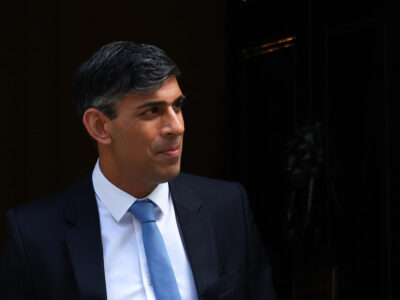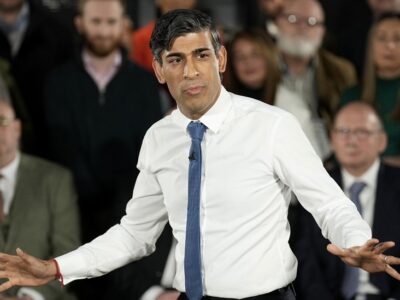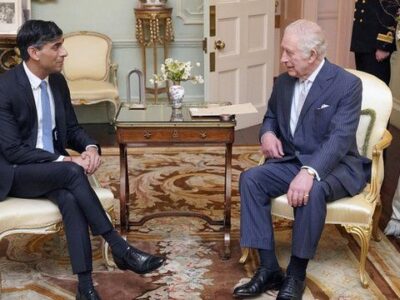Government plans to tackle small boat crossings will not solve the issue of illegal migration, former Prime Minister Theresa May has warned. Under the proposals, modern slavery victims would be “collateral damage” and denied support, she told MPs. Several other Tories also called for changes to the Illegal Migration Bill. However, it passed its first Commons hurdle, with the home secretary saying it was “a humane attempt” to break the incentive for people-smuggling gangs.


The bill passed its second reading in the Commons by 312 votes to 250, with the majority of Tory MPs voting for the plans. No Conservatives voted against, although Mrs. May and former ministers Chris Skidmore and Caroline Nokes, who have been publicly critical of the bill, were among those who did not register a vote, according to the Parliament website. Critics say the proposals break international law and they are likely to face opposition in the House of Lords, as well as legal challenges in the courts.
During a debate on the bill in the Commons, Mrs. May told MPs that “whenever you close a route, the migrants and the people smugglers find another way, and anybody who thinks that this bill will deal with the issue of illegal migration once and for all is wrong”. She raised several concerns about the proposed legislation, including that anyone fleeing persecution who came to the UK via an illegal route would face a “blanket dismissal”.
“By definition, someone fleeing for their life will more often than not be unable to access a legal route,” she said. Mrs. May also highlighted the potential impact of the bill on victims of modern slavery, saying “as it currently stands we are shutting the door on victims while being trafficked into slavery here in the UK”.
“If they come here illegally they will not be supported to escape their slavery,” she added. The former home secretary said No 10 had offered to discuss her concerns about the bill and she hoped “we can find some resolution”. Another senior Conservative MP, Sir Robert Buckland, said he had “great concern” about a clause of the bill which could allow children to be detained. The former justice secretary also warned that the “tone” used by some members of his party was “not appropriate” and “we have to do better”.

“I am deeply troubled at the prospect of a policy which seeks to criminalize children, pregnant women, families and remove them to Rwanda,” the former immigration minister told Times Radio. However, other Conservative MPs were supportive of the government’s approach. Former minister Sir John Hayes said people wanted “tough action” on illegal immigration.
“Of course Britain should provide a safe haven for people in need, in genuine need,” he said. “But it is a deceit to pretend the asylum system is not being gamed and the British people taken for a ride.” Marco Longhi, who represents Dudley North, said the bill would act as a deterrent for people undertaking “very perilous journeys”. Labour voted against the bill, describing it as “a con that makes the chaos worse”. Shadow home secretary Yvette Cooper said “it won’t stop the criminal gangs or dangerous crossings” but “it will rip up our long-standing commitment to international law”, as well as “lock up children” and “remove support and safe refuges from women who have been trafficked”.
The SNP also opposed the bill, saying there was no proof it would work and it would “create an underclass of people stuck in immigration limbo indefinitely”. Defending the plans, Ms. Braverman said unaccompanied children would only be removed from the UK under limited circumstances, such as for the purposes of family reunion. “Otherwise, they will be provided with the necessary support in the UK until they reach 18,” she told MPs.
Responding to concerns about families and pregnant women, she said “we must not create incentives for the smugglers to focus on people with particular characteristics by signposting exemptions for removal”. Closing the debate, Immigration Minister Robert Jenrick said the government was “committed to tackling the heinous crime of modern slavery and supporting victims”. “It’s for that reason that we want to prevent abuse [of the system],” he added.
![]()





